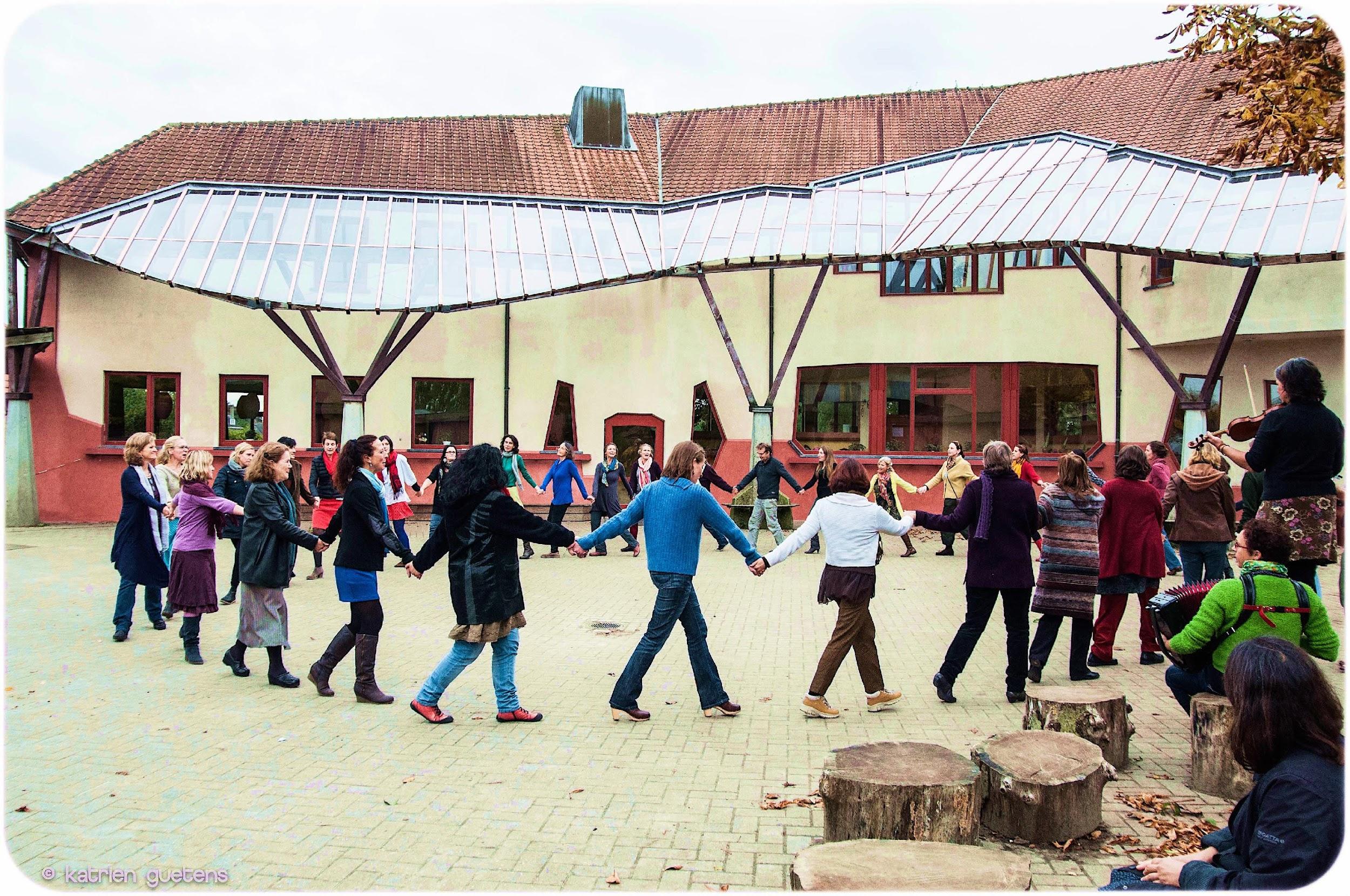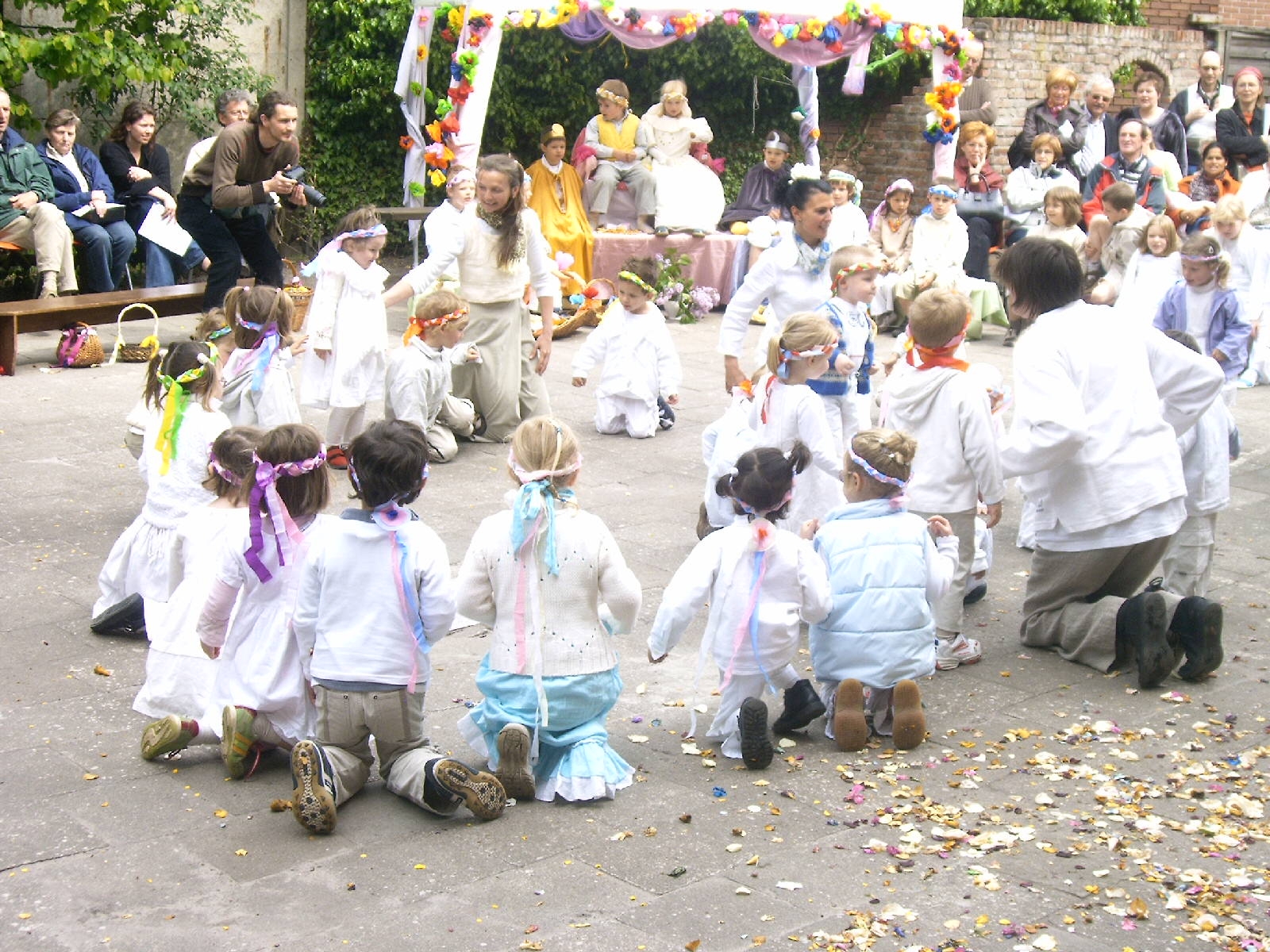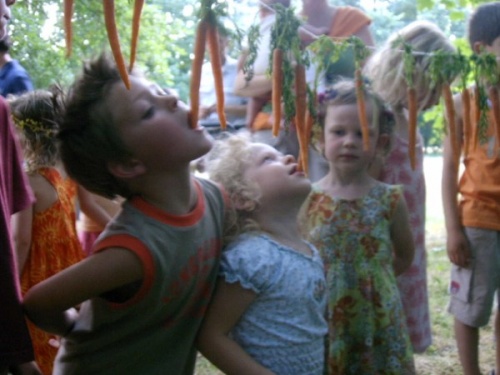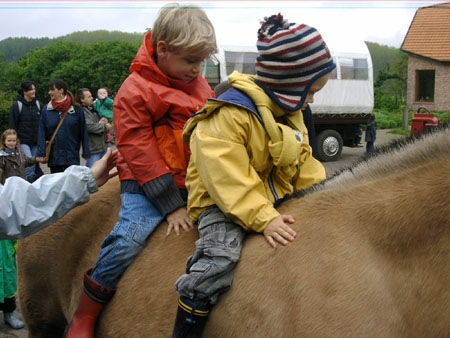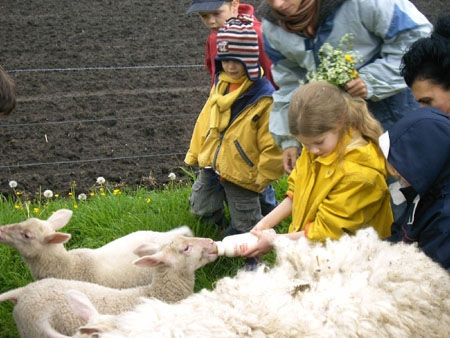At the moment there are approximately 1300 children being cared for in 18 Steiner kindergartens.
By law all children need to be accepted in kindergarten from the age of 2,5 years, and in many Steiner schools separate pre-kindergarten groups are being organized for these very young children with fewer children per group and where possible an extra helper. In addition, “Salutogenese,” an anthroposophically based organization for the child from 0-3, fosters the further development of home and daycare initiatives based on Steiner education in Belgium. The education system in multilingual Belgium is organized independently within each of the 3 language communities, each with its own sets of laws – this has had a real effect on the development of Steiner schools in Belgium. Steiner kindergartens in Flanders are each part of one of the 15 Steiner primary schools and there are at the moment 6 schools for Steiner secondary education. They are all recognized by the Flemish Ministry of Education and get governmental subsidies. In comparison to many other Steiner kindergartens in the world, the kindergarten groups have many children with numbers up to 25 children and more. In addition to this, most groups only have one kindergarten teacher with mostly no or very little assistance, which brings its own set of challenges both for the children and the kindergarten teacher.
Looking back. The initiative for the establishment of Waldorf or Steiner education in Flanders/Belgium took place through the impulse of the Antwerp notary Emile Gevers in 1948-1954. About the same time, the 2nd battle of the educational battle between the Catholics and Liberals in Belgium was at its peak. Not formally bound by or affiliated with a political party or religion, the first Steiner school got a green light and the first Steiner kindergarten started in September 1954 in Antwerp, under the care of Caroline Smits as kindergarten teacher. For the opening of the school several well-known Anthroposophists came from neighboring countries, such as Herbert Hahn and Ernst Lehrs from Germany. But mostly the Dutch were well represented and had a big influence on the start and further development of Steiner education in Flanders with Willem Zeylmans of Emmichoven, Bernard Lievegoed, Max Stibbe, Daan van Bemmelen and Wim Veltman as some of the most prominent figures. In 1971 the Parcival School opened its doors as the first Steiner school for children with special needs and learning difficulties. It took another 22 years until 1976 before the 2nd Steiner school was founded in Lier, followed by faster growth first in the bigger cities Gent (1978), Bruges (1979), Leuven (1982) and later in smaller cities and towns. In the period 1995-1997 the Steiner schools, enforcing their constitutional right to freedom of education in court, received the right to use their own curricula and specific development goals and objectives.
Working together. The Steiner schools are working together in 2 school communities (elementary and secondary) and an overarching Federation for Steiner schools in Flanders. In these school communities the different educational tasks and challenges are being decided upon and given to the educational co-workers and working groups to process. The further training of their teachers is one of their responsibilities. The ‘Working Group for Steiner education for the child from 0-7’ prepares among other things the yearly conference and acts as a sound board for the developments in the kindergartens. The Federation is taking care of the overarching tasks that transcend the school community level, such as international collaboration, advocacy work, network with local educational partners, quality frameworks, etc.
In contrast to the situation in Flanders it’s been much more difficult in the French part of Belgium to start Steiner schools. At the moment there are 4 Steiner kindergartens, of which 2 are part of a Steiner primary school. In the small German part of Belgium there has been one Steiner kindergarten in the past but they moved many years ago to Germany.
Training. There is no full-time Steiner-based teacher training in Belgium. In order to work as a teacher in Belgium from kindergarten up to secondary school, a teaching degree recognized by their Ministry of Education is required. In the past most teachers went for several years for further Steiner training in Germany or Holland. In recent years, training modules for Steiner education are organized by the Federation and the different school communities to offer teachers the possibility of professional development.
Clara Aerts is a former Steiner kindergarten teacher and a pedagogical co-worker for the Steiner schools in Flanders, a lecturer and guest teacher in training courses worldwide, and a member of the Coordinating Group of IASWECE.
Website of the Federation of Steiner schools in Belgium

